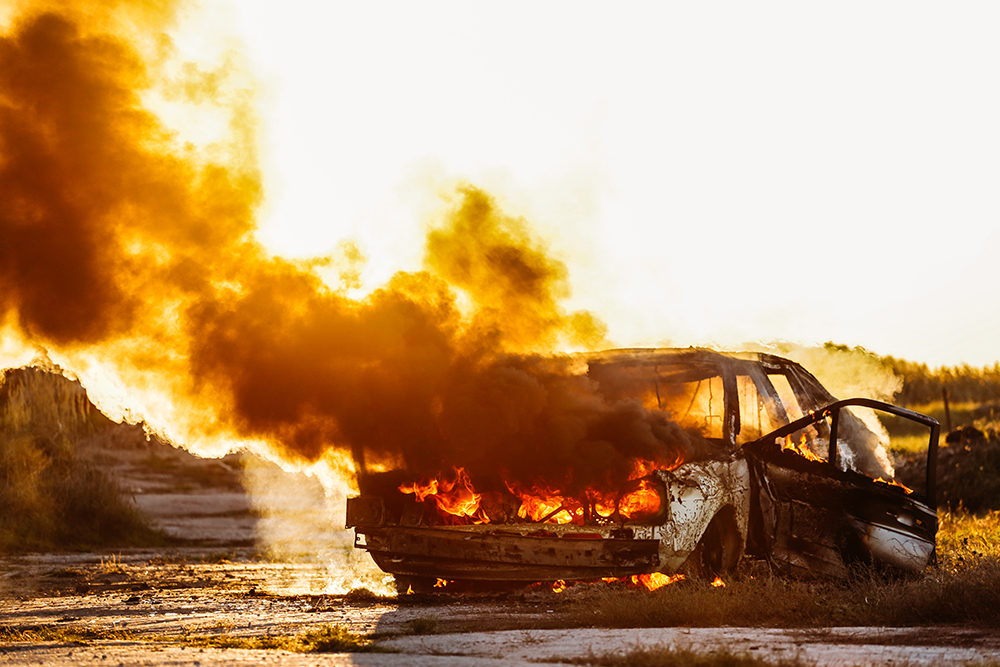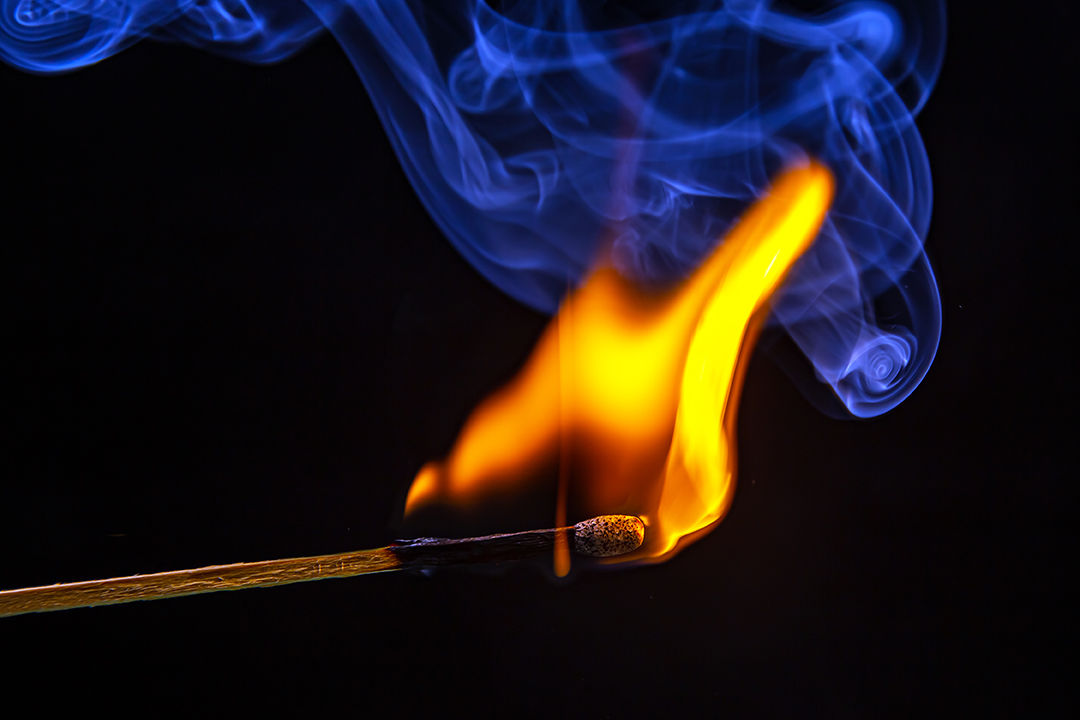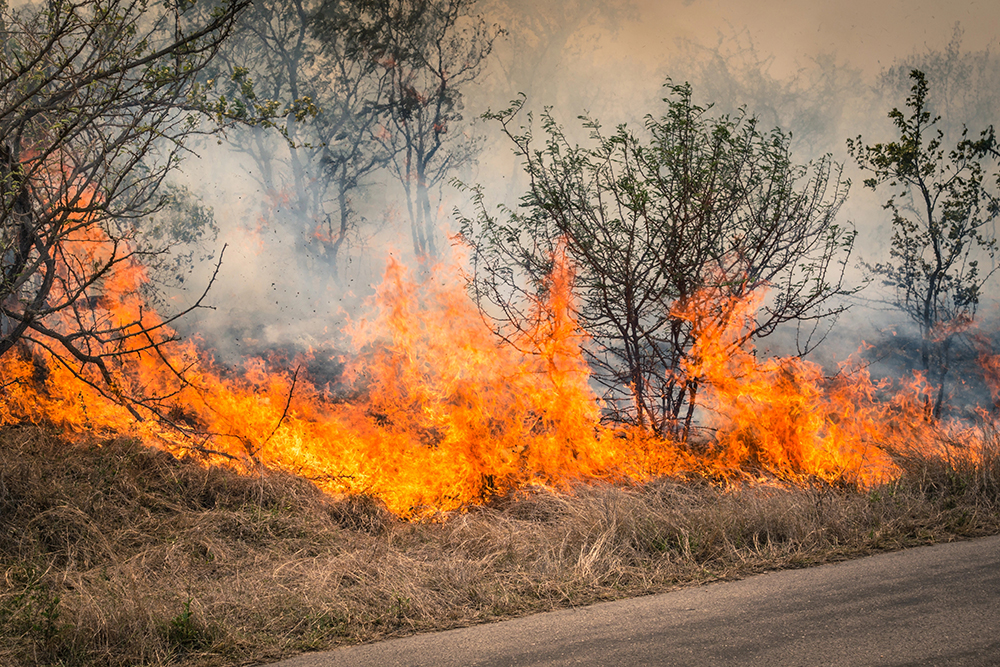Arson Lawyers in Toronto: Beat The Charge
Arson is the act of causing property damage through the action of an intentionally or recklessly caused fire or explosion. The unpredictable nature of fires or explosions can cause danger to property and human life, thus making arson a serious criminal offence under the Code, with a maximum punishment of life imprisonment.
Arson is covered under s.433 to s.436 of the Criminal Code under Part XI, with five types of arson being recognized by the Code.
If you have been charged with arson in Toronto, you will need advice from an experienced team of criminal defence lawyers. Contact our office to learn how we can help you fight against the charge.
A Strategic Approach To Criminal Defence

For over 10 years, Dylan has practiced exclusively in the area of criminal defence and has a particular passion for litigation that involves Charter rights.
A natural and persuasive advocate, Dylan’s objective is to craft a strategy that achieves the optimal outcome for my client.
Our team of lawyers at Strategic Criminal Defence are guided by core values of service, results, integrity, teamwork, drive, and strategy. We share our collective experience, resources, and passion to help people and look for opportunities to add value to our clients through strategic thinking and creative solutions.
Our Toronto Branch has 3 criminal defence lawyers, and have defended clients in hundreds of criminal cases.
Key Takeaways
- Depending on which type of arson you have been charged with, the severity of the offence will vary based on whether it is viewed as an indictable or summary offence
- Arson charges hold the potential of incarceration, with maximum sentences ranging from 5 years, 10 years, 14 years or life imprisonment, as well as the possibility of being ordered to pay the victims back for the full amount of damage caused
- The specific circumstances surrounding the charge will give light to potential bail conditions. For example:
- A curfew or house arrest may be placed as a condition if it is believed that the fire/explosion was caused at night or while you were intoxicated
- You may also be prohibited from possessing any items that can be used to start fires (matches, lighters, gas, propane, etc.)
- The prohibition on the use of drugs, alcohol and weapons may also arise
- You may also be prohibited from travelling
- With a diligent defence lawyer, arson charges can be beaten. Contact a lawyer for assistance in determining the best strategy for you.
Types of Arson
There are 5 different arson offences recognized by the code:
Disregard for Human Life
Section 433 of the Code states that it is an indictable offence for bodily harm to be caused as a result of any individual setting fire to a property either knowingly or recklessly as to if it is occupied, and will be liable to life imprisonment.
Damage to Property
Section 434 of the Code indicates that it is an indictable offence to cause property damage by means of a fire or explosion to a property that is not wholly owned by that individual. That individual will be liable to incarceration for a maximum of 14 years.
Own Property
Section 434.1 of the Code states that it is an indictable offence for an individual to cause property damage to their own property by setting fire or starting an explosion resulting in the serious harming of the health and safety of others. That individual will be liable to a maximum sentence of 14 years imprisonment.
For Fraudulent Purpose
Section 435 of the Code indicates that it is an indictable or summary offence for an individual to cause property damage by means of fire or explosion, with the intention of defrauding, which includes the intention to claim insurance money or to defraud another individual. If the charge is pursued as an indictable offence the maximum sentence is 10 years imprisonment. If the charge is pursued as a summary offence then the punishment may be either or both a fine of no more than $5000 or incarceration of no more than 2 years less a day.
By Negligence
Section 436 of the Code states that it is an indictable or summary offence for an individual to disregard taking the proper preventative measures for preventing/controlling a fire or explosion on their own property. The maximum sentence an individual would face for this charge if pursued as an indictable offence is 5 years imprisonment. The maximum sentence if the charge is pursued as a summary offence is a fine of not more than $5000, or imprisonment of not more than two years less a day or both of these may be applied.
How can an arson lawyer in Toronto help?
When fighting an arson charge, a criminal defence lawyer can provide invaluable advice and assistance in navigating through the legal process. Before any charges are applied, a lawyer will inform you of legal advice. Should you choose to pursue the services of a lawyer, they will aid you in navigating conversations with law enforcement so that you are protected from self-incrimination.
Through the gathering of evidence, interviewing witnesses, and if necessary the retaining of expert witnesses, a lawyer can help you reach a favourable outcome. Furthermore, with the vast experience of navigating both the criminal justice system and court processes, a lawyer can be invaluable in representing you during trial.
Arson Charges in the Criminal Code of Canada
The following sections outline arson offences in the Criminal Code of Canada.
According to s.433 to s.436 of the Criminal Code:
Examples of Arson Charges
Some examples of arson charges may include the following:
- Setting fire to your car;
- Not properly extinguishing a fire that ensues;
- Starting a fire in your own home, with the intention of committing suicide; and
- The destruction of property that is caused by intentionally placing matches to paper.
Arson Charge Defences
The applicable defences will largely depend on the specific facts of the case. A multitude of defences are available but the strength in applying them relies on the details of the allegations. The more commonly applicable defences to arson charges are further examined below:
- Breach of Charter Rights: Before an individual is fully convicted they are entitled to their Charter rights. Therefore if your Charter rights are breached by for example you not being provided with complete disclosure or being coerced into making a statement, it is possible that the charges you are accused of will be withdrawn or reduced.
- Identity: For this defence to successfully be applied, you must prove a case of mistaken identity to raise reasonable doubt as to whether you were the one who caused the fire or explosion. Having a strong alibi for when a fire or explosion occurs can immensely aid in having a strong defence.
- Defence of Mental Disorder: This is often a tricky defence to meet, as most mental disorders do not have visible symptoms. It must be established that the accused was not aware of the extent of their actions due to a “disease of the mind”. It is noteworthy that if acquitted on this defence, then you will be held as “not criminally responsible on account of a mental disorder” which differs from “not guilty”.
- Lack of Mens Rea/ Actus Reus: A key component of arson convictions is the intent or recklessness in causing the fire or explosion. If the defence is able to prove that these components are missing, by for example demonstrating that the fire’s occurrence was an accident, then the accused may be acquitted due to a lack of mens rea.
- Lawful Excuse/ Colour of Right: This defence is applicable in cases where the individual honestly believed that they acted within their Charter rights when causing the fire or explosion, thereby providing a legal justification for the act.

What are the consequences of an arson charge?
Due to the destructive and unpredictable nature of fire, the Courts recognize the potential for life-threatening situations to arise and therefore arson is considered to be a very serious offence in Canada, regardless of whether you are a first-time offender or a repeat offender. Most types of arson charges are indictable offences, however two of them are considered to be hybrid offences. This means that the two types of arson, for fraudulent purposes and by negligence, are hybrid offences and can be pursued as either a summary offence or an indictable offence depending on the circumstances of the case.
The maximum sentences vary from 5 years, 10 years, 14 years or life imprisonment depending on which type of arson the accused is convicted of. The Courts may also order the accused to compensate the victims for the full amount of damage caused.
Arson Charge Investigation
When there is a larger arson case, the police will usually send a large team of specialists to gather evidence from the scene. Meanwhile, the police will work to determine a motive by speaking with the victims and gathering witness statements. The police and the specialist team will then work together to determine the cause and reason for the occurrence of the fire or explosion resulting in the establishment of any suspects. Once all the evidence is collected, then the police will either arrest the suspected perpetrator or issue a warrant for their arrest if they are not at the scene.

Bail Conditions for Arson Charges
After you are charged with arson and following a bail hearing if you are released on bail there will be certain bail conditions that you must adhere to. Defying these conditions can result in you being charged, your bail being dismissed, or a penalty requiring you to pay a fine being applied.
These conditions can often include the prohibition of possessing any materials that can start a fire, such as matches, lighters, gas or propane. Depending on the circumstances of the case, if it was believed that a fire or explosion occurred at night or while you were intoxicated then a possible bail condition may be a curfew or house arrest. Further bail conditions may include a prohibition on travelling and on the use of drugs, alcohol and weapons.
Frequently Asked Questions About Arson
Related Offences
- Fraud: Fraud is the conduct of various dishonest and deceptive acts. In relation to arson, an individual may have the intention to defraud for example their insurance company.
- Theft: Theft covers various illegal acts and is a non-violent property offence. In relation to arson, an individual may simultaneously commit theft and arson.
- Mischief: Mischief is when an individual unlawfully interferes with the property of another. This relates to arson in the sense that someone causing mischief may also cause an arson.
- Possession of Stolen Property: Possession of stolen property is when an individual knowingly gains or controls property while committing a crime. This can relate to arson if an individual, for example, controls the property that they cause arson on.
Conveniently Located In Downtown Toronto
Strategic Criminal Defence
100 Richmond St W Suite 414,
Toronto, ON M5H 3K6

a senior criminal defence lawyer and managing partner of Strategic Criminal Defence.







